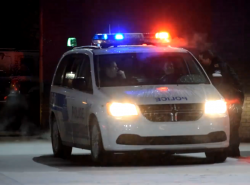
— Tesla is already under a federal investigation into why at least 12 vehicles with Autopilot engaged crashed into parked emergency vehicles with their flashing lights activated.
Now safety regulators want to know why Tesla didn't file official recall documents when the automaker issued an over-the-air update to allegedly improve recognition of parked emergency vehicles.
The update will allegedly help the vehicles detect flashing emergency lights in low-light conditions then warn drivers to take action when Autopilot is engaged.
The National Highway Traffic Safety Administration (NHTSA) says if the automaker has no plans for a recall, Tesla must explain the technical or legal basis for its decision.
NHTSA said Tesla is fully aware the federal Safety Act requires an automaker to issue a recall by notifying NHTSA when the company determines vehicles contain safety defects.
The notice must be filed with NHTSA no more than five working days after the manufacturer knew or should have known of the safety defect or noncompliance.
According to the government, any "manufacturer issuing an over-the-air update that mitigates a defect that poses an unreasonable risk to motor vehicle safety is required to timely file an accompanying recall notice to NHTSA."
Tesla's Full Self-Driving System
In addition to the emergency light update, NHTSA has asked Tesla to provide details about alleged “Full Self-Driving” systems referred to by Tesla as “Autosteer on City Streets.”
Specifically, NHTSA wants to learn more about an in-vehicle menu update added by Tesla in October 2021 "enabling owners to request consideration for future acceptance into Tesla’s Full-Self Driving early access beta release including but not limited to: related in-vehicle menu options and Tesla’s customer scoring and selection criteria."
According to NHTSA, Tesla has until November 1, 2021, to respond to the latest letter.
Tesla could be looking at civil penalties up to $22,992 per violation per day, with a maximum penalty of $114,954,525 for failing to meet federal safety standards and recall requirements.




